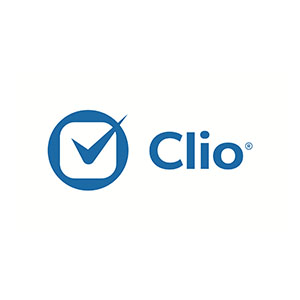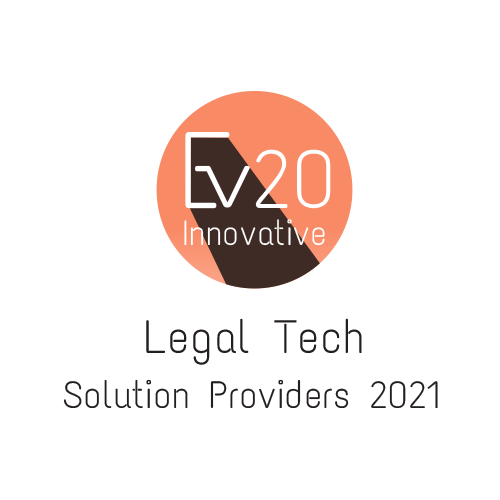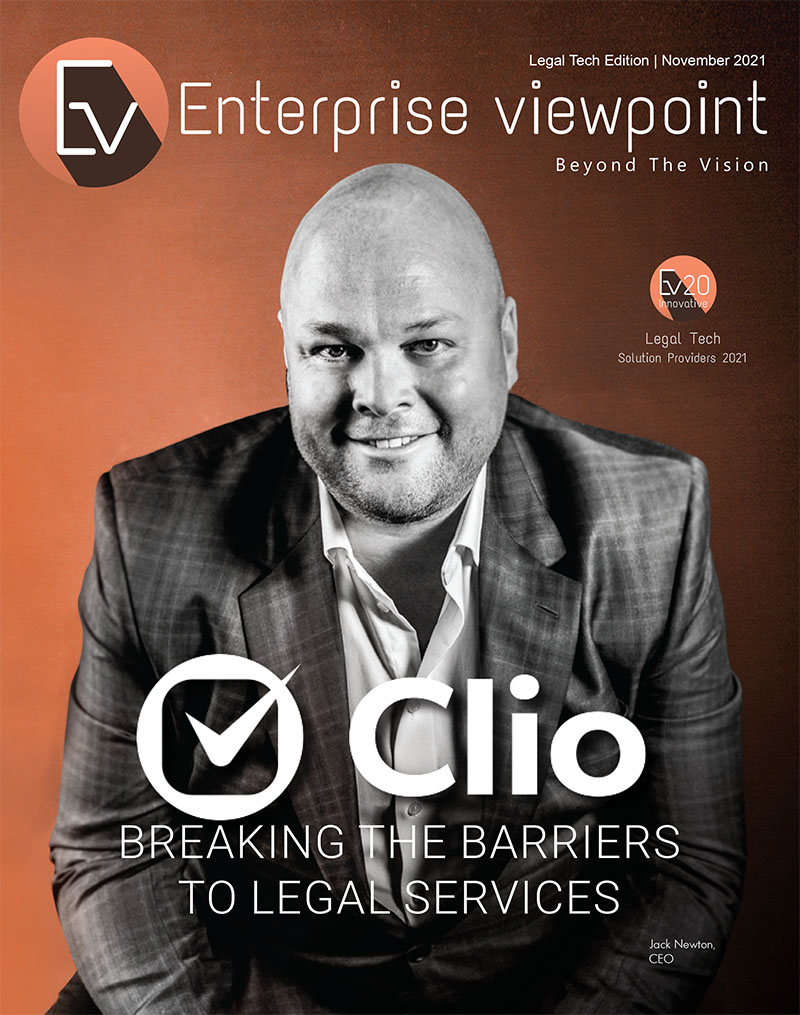About a decade ago, lifelong pals Jack Newton and Rian Gauvreau decided to start a company with a vision to completely transform the legal experience for all. This decision sprouted on a firm belief that the future of legal services is cloud-based and client-centered, and that fostering these advancements will drive positive social change and create a more inclusive legal system. By focusing precisely on the legal experience, there is a chance for an even greater impact on how society engages with, delivers, and experiences legal services. This is what led to the finding of Clio—a legal technology company headquartered in Burnaby, British Columbia. Regarded as the leading software for law firms, Clio offers cloud-based software that handles various law practice management tasks including client intake, contact management, calendaring, document management, timekeeping, billing, and trust accounting.
In a nutshell, Clio is centralizing and simplifying business operations for law firms. Over the years, the company have seen a massive adoption of cloud-based technology as a means for lawyers to keep their firms running smoothly and continue to support their clients in a rapidly changing environment. To best support lawyers in running their firms and supporting their clients, Clio takes a holistic approach to building solutions that are both cloud-based and client-centered. Clio is creating new solutions for lawyers to better serve their clients by enabling law firms to better communicate and collaborate between staff and with clients, wherever they are located. “We’re innovative, but thoughtful about it. We update our product a lot, but it’s based on real research. We want to deliver a solution that actually helps our customers.”
The company’s consumer-facing app, Clio for Clients, allows clients of Clio lawyers to receive updates and documents—and communicate with their lawyer—through one secure app designed specifically for them. As the leading cloud-based legal technology company, Clio is also helping clients understand how to navigate the legal system and how to meet client needs, while also building the foundation for creating better, more efficient, and more client-centered legal practices.
Embedding Cloud into Law
The Clio manage is a cloud-based legal practice management software that makes running legal firm, organizing cases, and collaborating with clients from one place possible. Clio helps provide a client-centered billing that gets paid faster while enabling to accept online payments in accordance with trust accounting rules, set flexible payment plans, and more. Clio automates tasks, minimizes paperwork, and eliminates redundancies and help streamline day-to-day tasks, so legal firms can get back to what matters most. The platform also enables to work in compliance with regulatory standards using straightforward financial tools.
Clio’s Global Search to retrieve a document based on terms in the title, text, or metadata. Legal firms can seamlessly filter and sort files by custom categories, folders, authors, and dates while enabling them to navigate and preview files from nested matter and contact folders on a desktop. The integrated electronic signature feature enalbes to review, prepare, and send out documents for signature by email. As a result, businesses can remove the hassle of downloading, printing, or scanning as signed documents are automatically and securely saved in Clio. Moreover, leagal professionals can pull up any legal document even on a mobile phone or laptop at any time to redline, annotate, and more. This enables them to spend less time preparing stacks of documents—and more time preparing case.
Another offering from the company is the Clio Suite, the industry’s only end-to-end software solution for law firms. It seamlessly automates tedious client intake and case management tasks, and focus on work that benefits the most. Legal professionals can add potential client information and open new matters easily with Quick Intake while enabling to sync intake and practice management calendars across Clio Grow and Clio Manage—use one scheduling platform. Professionals can also utilize the added checklists and automated reminders to stay on top of tasks and appointments. Users can track potential clients and collect matter details in Clio Grow, with features like online intake forms and the matter pipeline. Export relevant documents and information from Clio Grow to Clio Manage, so every detail is ready to go. The application also enables to access everything—cases, scheduling, and contacts—whenever needed, securely, from the cloud on the click of a button.
Digitalizing the Legal World
At the core of Clio’s philosophy is the belief that the future of legal services is cloud-based and client-centered, and that fostering these advancements will drive positive social change. By centralizing and simplifying business operations for law firms and enabling legal professionals to connect with clients anywhere, anytime, we can transform the ways in which legal services are sought out and delivered. This is an opportunity for a paradigm shift, requiring lawyers to adopt a client-centered approach to pricing, packaging, and delivering legal services. “We believe doing this will break down barriers to legal services for consumers and make it easier for clients and law firms to work together more thoughtfully and effectively. It’s time to create a more inclusive legal community and a more equitable legal system.”
At Clio, the team believe—on a foundational level—that Clio have a responsibility to change the world around with a whole new set of innovation. The company envision a world in which the legal and judicial systems promote justice in the truest sense of the word—a world in which it is easy for anyone who needs legal services to access them; for lawyers to have the freedom to practice the way they want; and for underrepresented groups in the society to get the advocacy they deserve. With that in mind, the company invest heavily in creating the tools and resources legal professionals need to make data-driven decisions and truly understand their practices on a deeper level and create meaningful change. These resources and tools enable law firms to make data-driven decisions about how to improve client experiences, productivity, and revenues while acting with vision, understanding, clarity, and agility.
Being the market leader for legal technology means that Clio’s team have an added responsibility to set the tone for the next generation—and to help ensure that the technology shaping legal experiences is also serving the greater good. Historically, the company’s mission has been to transform the practice of law, for good. While this mission has served as an important North Star for the company, Clio is planning to take it a step further. Over the past year, Clio saw the issues facing the legal industry become magnified, and quickly realized that the mission could do more to reflect their broader ambitions. To better support the permanent changes Clio experienced as a global community in 2020, Clio is expanding its mandate to include how society engages with, delivers, and experiences legal services. “We are extremely excited to announce that our mission statement has evolved: As of today, Clio’s mission is to transform the legal experience for all. By focusing on the legal experience, Clio’s new mission encompasses every stakeholder within our legal and judicial systems—from legal professionals to legal organizations, clients, and consumers. This encompasses more than improving our software products; it’s about the larger impact we can have on the legal experience, on a global scale. We will also actively invest resources into understanding what the future holds, and building solutions that will support it.”












